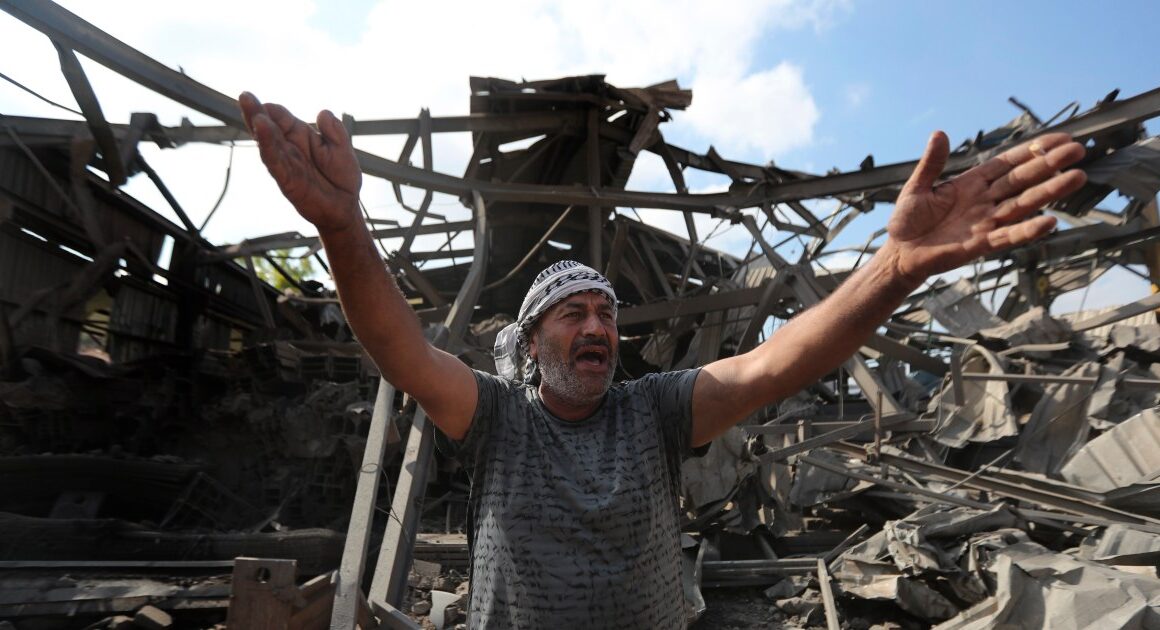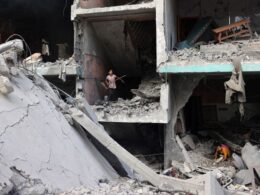NABATIEH, Lebanon — An Israeli strike in southern Lebanon early Saturday killed at least 10 Syrian nationals, according to Lebanon’s Health Ministry.
The strike on Wadi al-Kfour in Nabatieh province is among the deadliest in Lebanon since the Hezbollah militant group and Israeli military started trading strikes on Oct. 8, a day after Hamas attacked southern Israel and sparked the Israel-Hamas war in Gaza. Hezbollah maintains that it will stop its attacks once a cease-fire is reached in the Gaza Strip.
Among the dead were a woman and her two children, the ministry said. Five others were wounded, two of whom in critical condition.
An Arabic-language spokesperson for the Israeli military, Avichay Adraee, said the strike in the southern province targeted a weapons depot belonging to Hezbollah.
Mohammad Shoaib, who runs a slaughterhouse in Wadi al-Kfour, said the area struck was an “industrial and civilian area” that contained factories producing bricks, metal, and aluminum, as well as a dairy farm.
The uncle of three of the people killed in the strike said they were factory workers who were in their housing accomodation when they were hit. He denied that there were weapons at the facility.
“There was nothing at all like that,” Hussein Shahoud said. “There was metal for construction, for building, for all kinds of purposes.”
Hezbollah has not immediately commented on the strikes.
The Lebanese government and international governments have scrambled for weeks to put an end to the monthslong clashes, with the region on a knife edge since July.
An Israeli strike last month in southern Beirut killed Hezbollah’s top commander, whom Israel accused of leading a rocket attack on the Israeli-occupied Golan Heights that killed 12 youths. Hours later, an explosion widely blamed on Israel killed Hamas political leader Ismail Haniyeh in the Iranian capital.
Both Tehran and Hezbollah vowed to retaliate, but have not yet launched strikes as diplomatic endeavors and Gaza cease-fire talks continbue in Qatar.
Hezbollah and Israel fought a six-week war in the summer of 2006 that ended in a draw. Hezbollah’s military capabilities have developed significantly since then.
More than 500 people have been killed in exchanges since Oct. 8, most of them fighters with Hezbollah and other armed groups but also including around 100 civilians and noncombatants. In Israel, 22 soldiers and 24 civilians have been killed. Tens of thousands of people have been displaced on both sides of tense frontier.
,








